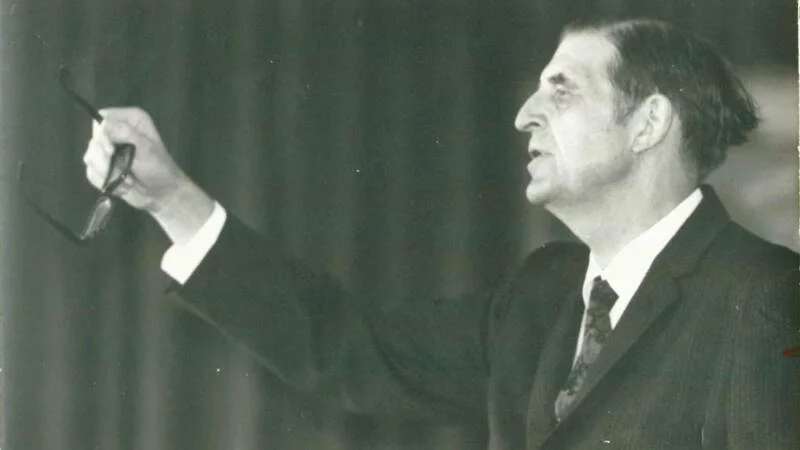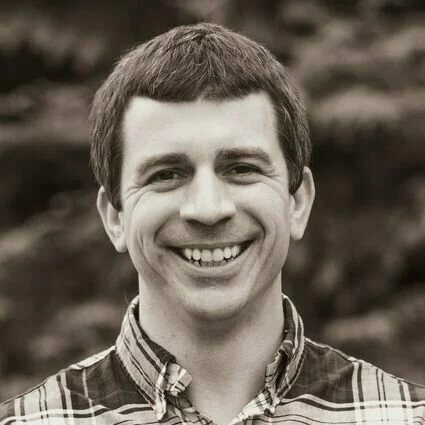I guess it’s best to begin this post with a confession: before coming to Trinity I had never heard of Carl F. H. Henry. Having grown up in a mainline denomination that didn’t look highly on neo-evangelicalism, his was not a household name. And despite attending an evangelical church in college and majoring in religion, Henry remained under my theological radar during the undergrad years.
All that changed when I came to TEDS. Suddenly I began to encounter him again and again, from the class notes and personal anecdotes of John Woodbridge to lecture series after engaging lecture series sponsored by the “Carl F. H. Henry Center for Theological Understanding.” His was clearly a name that was revered, spoken with the same affection as “Billy Graham” and the same respect as “Kenneth Kantzer.”
But the incredible realization for me was that the respect his name conjured wasn’t limited to Trinity faculty. Speaker after speaker from other institutions would go out of their way to share the impact which Carl Henry had on them, often saying a word of thanks for the enduring legacy he left evangelicalism.
And in the classroom it also became clear that Henry was a name we needed to know, not just to understand the state of evangelicalism today but also to understand the trajectory of contemporary theology as a whole. In books that explored the work of Schleiermacher and Barth and Moltmann, there too was Henry, representing an evangelical voice that could not be ignored.
And so it is with quite a bit of sadness that I must make another confession on behalf of my fellow seminary students: Carl Henry is a figure we are still all too unfamiliar with. Despite his enormous contribution to modern evangelicalism and his towering legacy that a previous generation of evangelical theologians is so well aware of, I’d bet my Bible that if you ask your average twenty-something seminary student about him you’d hear, “Carl who?”
And the real tragedy is that we need to draw on the resources Henry provided us now more than ever. We need to catch his unifying vision for a broad-tent evangelicalism where we major on the majors and minor on the minors. We need to hear his prophetic cry that theology which departs from a rigorous doctrine of revelation and a commitment to biblical authority has taken a disastrously wrong turn. And we need to follow his move beyond our fundamentalist forefathers to engage culture and address the pressing political and social issues of our time.
But beyond all these things, we need Henry as a model for what it means to bridge the gap between the church and the academy. The mission of the Henry Center is, in part, to cultivate Christian thinking that makes a difference in the academy, in our churches, and in the secular world. Carl Henry would be proud of that mission and is a critical voice for us to engage as we go about that important business. I only hope my generation doesn’t proceed while saying, “Carl Henry, we never knew you.”





Comments
Be the first one to make a comment!